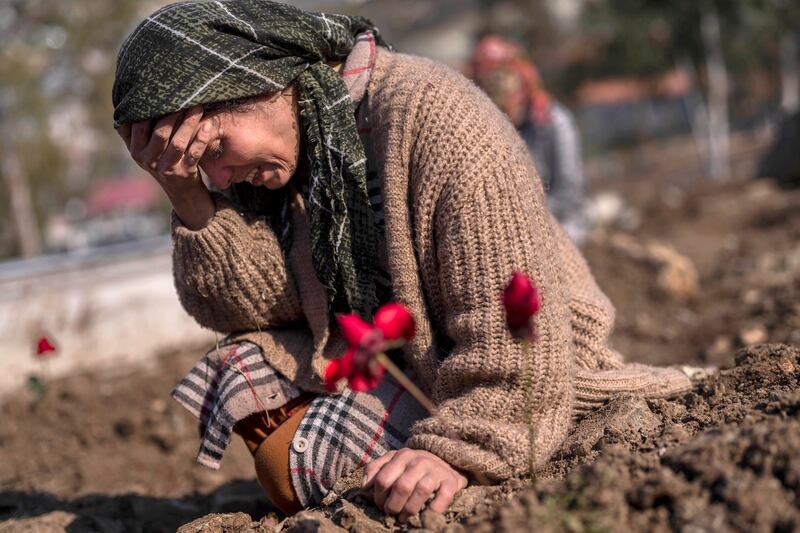Even in an increasingly secular society, questions about whether companies can require people to work on the Sabbath, or whether a school basketball team must play or forfeit the game, remain timely and controversial.
But the recent devastation in Turkey and Syria brought to light an ancient question: whether it is lawful for observant Jews, who abstain from work on the Sabbath, to perform rescue operations on their holy day of rest.
The answer, of course, is yes.
After the Feb. 6 earthquake, David Lau, the Ashkenazi chief rabbi of Israel, issued a ruling for Israeli search-and-rescue teams operating in Turkey, saying: “Wherever there is any chance of saving lives and finding survivors, the engineering team must continue its activities.”
Lau cited the principle in Jewish law that says saving lives (pikuach nefesh) takes precedence in virtually every instance.
This may be surprising to some outside of the faith, who mistakenly believe that Jewish Sabbath observance stops at nothing, even when lives are on the line.
This thinking has its roots in the Christian gospels, where Jewish leaders criticize Jesus for healing a man’s “withered hand” on the Sabbath. The same concern is leveled at Jesus for helping a woman who “had a spirit of infirmity 18 years.” When Jesus heals a blind man, some Pharisees say, “This Man is not from God, because He does not keep the Sabbath.”
These verses about Jewish leaders of that era have come up in messages from preachers and pastors today, in ways that can be inadvertently generalized. For example, in a 2010 sermon, evangelical pastor Mark Driscoll acknowledged that Jewish law permitted “emergency medical care” on the Sabbath but said “they had a whole list of rules for what defined emergency care.” Another pastor wrote in 2018, “The modern Jew won’t even ask God to heal on the Sabbath.”
Although these sorts of teachings are focused on the past, could these kinds of historical condemnations be influencing perceptions of Jews today? It would not be surprising if people unfamiliar with the faith took away the idea that these historical anecdotes are somehow reflective of Jews as a whole.
According to recently published data from the Anti-Defamation League’s Center for Antisemitism Research, 21% of respondents said it was mostly or somewhat true that “Jews don’t care what happens to anyone but their own kind.” And 17% said it was at least somewhat true that “Jews are not warm and friendly.”
“Historically, any criticism of specific Jews in the New Testament was generalized to apply to all Jews,” Ruth Langer, professor of Jewish studies and director of graduate studies at Boston College, told me. “This is a tendency that emerged once the majority of early Christians were gentiles and the polemics embedded in the New Testament against Jews lost their original contexts.”
Today, many — if not most — pastors try to understand New Testament statements about Jews “as applying within a specific historical context and to specific incidents,” added Langer, who is also a rabbi and associate director of Boston College’s Center for Christian-Jewish Learning. “But the reflexes of the older teachings can still surface.”
She noted that doctors and nurses routinely work shifts and answer calls on Shabbat.
Malka Simkovich, chair of Jewish studies and director of the Catholic-Jewish studies program at Catholic Theological Union in Chicago, said in an interview that some Christians interpret stories in the New Testament about Jesus “violating” the Sabbath to heal a sick person as “evidence of the Jews’ legal stringency and their lack of empathy for human suffering.”
“Rabbinic law, however, is very clear that one is obligated to break the Sabbath in order to save someone’s life.” Simkovich went on to note that the practice has its roots in the Second Temple period, reflected in 1 Maccabees 2, valorizing the Hasmonean leaders for violating the Sabbath to defend themselves against the Syrian Greeks.
“Modern rabbinic support for Israeli search-and-rescue missions to violate Sabbath is not a departure from Jewish tradition, but in line with it,” she added. “I would go so far as to say that the very claim that ‘Israeli search-and-rescue missions are permitted to violate the Sabbath’ is itself problematic. Saving a life on the Sabbath is not a violation of the Sabbath, but a manifestation of its proper observance.”
Jeffrey Kloha, chief curatorial officer at Museum of the Bible in Washington, was previously a New Testament professor of 18 years. He told me, “Jesus’ interactions with the religious leaders in the New Testament gospels reflect the discussions current within Judaism at the time. Scribes, Pharisees and Sadducees had differing interpretations of Sabbath requirements, and Jesus’ own teaching on the topic can be found within Judaism.”
This recognition faded as Christianity and Judaism increasingly diverged, and by the Protestant Reformation in the 16th century, Christians “interpreted Jesus’ criticism of Sabbath requirements as the legalism that was being decried in the church,” he said. “Over the past century, as Christian scholars became reacquainted with ancient Jewish texts, it became clear that such interpretations owe more to later controversies than to the roots of Jesus’ own teaching.”
Jesus’ Torah-based teachings, such as “Love your neighbor as yourself,” continue to inspire people of faith today, Kloha said, and motivate them “to respond to those in need in extraordinary, self-sacrificial ways” — as we have seen in Turkey and Syria.
Earlier this month, United Hatzalah abruptly flew its 25 volunteers back to Israel from Turkey following an imminent security threat against the Israelis. The team had helped rescue 15 people in a few days on the ground — including on the Sabbath.
Menachem Wecker is a writer based in Washington, D.C., and the U.S. bureau news editor at the Jewish News Syndicate.


